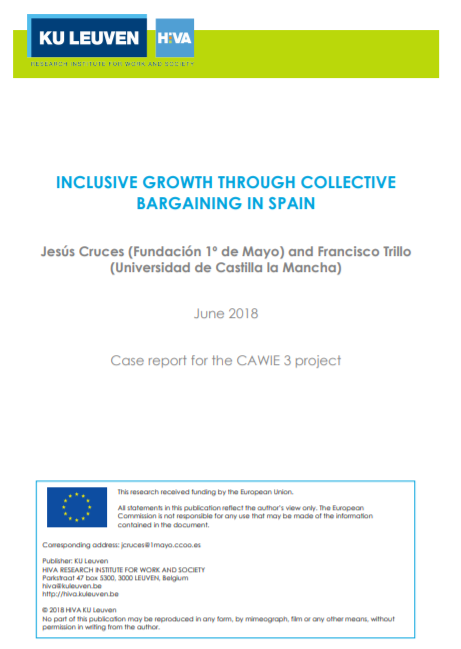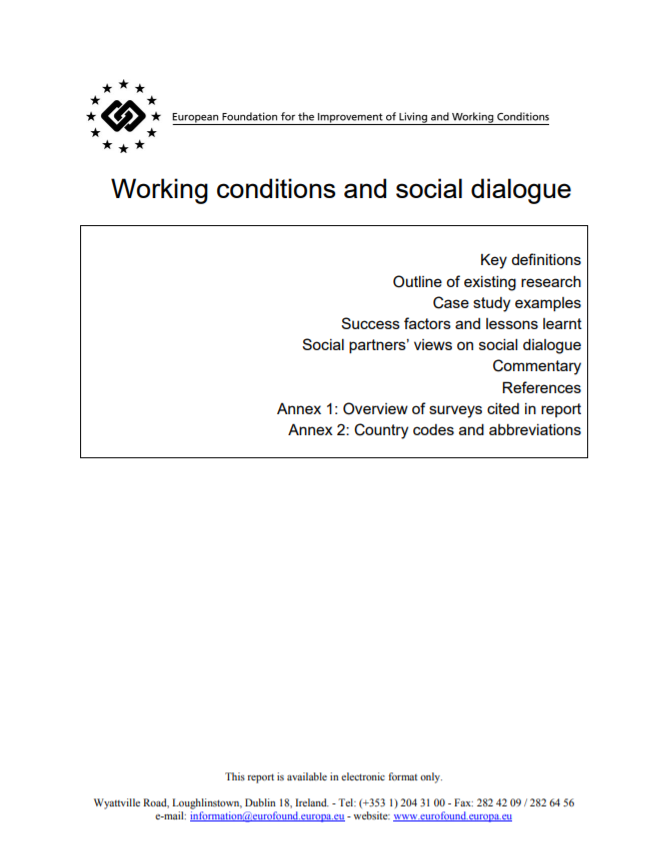This report examines the link between working conditions and social dialogue, highlighting instances where social dialogue has had an impact on working conditions. The impact of social dialogue on working conditions is considered at all levels – national, sectoral, company and workplace levels. There is also a specific focus on occupational health and safety. The first section of the report maps existing research and administrative reports, highlighting the findings of surveys, both quantitative and qualitative, that have identified a link between social dialogue and working conditions. The second section looks at examples of social dialogue drawn from case studies that have had an impact on working conditions in a range of areas. Some examples of incomplete social dialogue are also presented, including possible reasons for the shortcomings. Finally, the report identifies potential lessons for the future in terms of factors that contribute to the success or failure of social dialogue.
The study was compiled on the basis of individual national reports submitted by the EIRO and EWCO correspondents. The text of each of these national reports is available below. The reports have not been edited or approved by the European Foundation for the Improvement of Living and Working Conditions. The national reports were drawn up in response to a questionnaire and should be read in conjunction with it.
For the original source, please click here.


